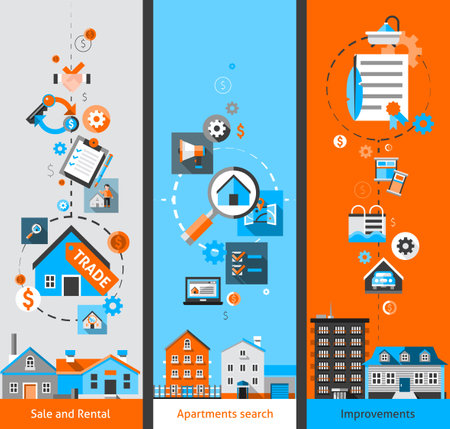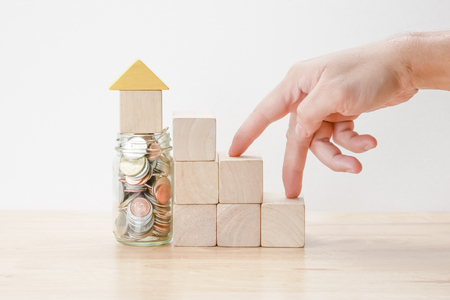1. Regular Inspections and Preventative Maintenance
As a landlord, staying on top of property maintenance can save you time and money in the long run. Scheduling routine inspections helps you identify potential issues before they turn into costly repairs. Here are some key areas to focus on during your inspections:
Plumbing System
- Check for leaks under sinks, around toilets, and in basements or crawl spaces.
- Inspect water heaters for signs of rust, leaks, or inefficiency.
- Ensure proper drainage and look for any slow-draining sinks or tubs.
HVAC Efficiency
- Change air filters regularly to maintain airflow and efficiency.
- Schedule seasonal HVAC servicing to keep heating and cooling systems running smoothly.
- Inspect vents and ductwork for dust buildup or blockages.
Roofing Conditions
- Look for missing or damaged shingles that could lead to leaks.
- Check gutters for debris buildup that may cause water damage.
- Inspect ceilings inside the property for any signs of water stains or mold growth.
General Wear and Tear
- Test smoke detectors and carbon monoxide alarms to ensure they are functioning properly.
- Check windows and doors for drafts, broken locks, or damaged weather stripping.
- Inspect flooring for loose tiles, carpet wear, or other tripping hazards.
Recommended Inspection Schedule
| Inspection Area | Recommended Frequency |
|---|---|
| Plumbing System | Every 6 months |
| HVAC System | Seasonally (Spring & Fall) |
| Roof & Gutters | Annually & After Storms |
| General Interior/Exterior Maintenance | Quarterly |
A proactive approach to property maintenance ensures tenant satisfaction and protects your investment. By conducting regular inspections and addressing minor issues early, you can prevent expensive repairs down the road.
Seasonal Maintenance Checklist
Keeping up with seasonal maintenance is essential for landlords to ensure their rental properties remain in top condition throughout the year. Proper preparation can help prevent costly repairs and keep tenants comfortable. Below is a seasonal checklist to help you stay on track.
Spring
- Inspect the roof for winter damage.
- Clean gutters and downspouts to prevent water buildup.
- Service the HVAC system before summer heat sets in.
- Check windows and doors for drafts or damage.
- Ensure outdoor areas, such as walkways and driveways, are safe and well-maintained.
Summer
- Test and maintain air conditioning units.
- Inspect plumbing for leaks or issues caused by temperature changes.
- Trim trees and bushes to prevent overgrowth and potential property damage.
- Check irrigation systems to ensure proper lawn care.
- Inspect decks, patios, and fences for wear and tear.
Fall
- Service heating systems before colder temperatures arrive.
- Clean out gutters to prepare for falling leaves.
- Seal any gaps around windows and doors to improve insulation.
- Drain outdoor faucets and sprinkler systems to prevent freezing pipes.
- Check smoke detectors and carbon monoxide alarms.
Winter
- Monitor heating systems for efficiency and functionality.
- Inspect pipes for signs of freezing or leaks.
- Keep walkways clear of ice and snow to prevent accidents.
- Check attic insulation to reduce energy costs.
- Ensure emergency contacts are available for winter-related repairs.
Quick Seasonal Maintenance Overview
| Season | Main Tasks |
|---|---|
| Spring | Roof inspection, gutter cleaning, HVAC service, window checks, outdoor maintenance |
| Summer | A/C maintenance, plumbing check, landscaping, irrigation system check, deck/fence inspection |
| Fall | Heating system service, gutter cleaning, insulation check, pipe preparation, alarm testing |
| Winter | Heating monitoring, pipe inspections, snow/ice removal, attic insulation check, emergency readiness |
A proactive approach to seasonal maintenance helps landlords avoid unexpected repairs and keeps tenants satisfied. Regular upkeep ensures your property remains in excellent condition year-round.

3. Tenant Communication and Responsibilities
Clear communication with tenants is essential for maintaining your rental property in good condition. Establishing expectations from the start can help prevent misunderstandings and ensure that both landlords and tenants fulfill their responsibilities.
Setting Clear Maintenance Expectations
Providing tenants with a detailed maintenance guideline helps them understand their role in keeping the property well-maintained. Consider outlining these key areas:
| Category | Tenant Responsibility |
|---|---|
| Basic Upkeep | Regular cleaning, taking out the trash, replacing light bulbs |
| Lawn & Outdoor Maintenance | Mowing grass (if required), keeping outdoor areas tidy |
| Avoiding Damage | Using appliances properly, preventing water damage, reporting leaks |
| Pest Prevention | Proper food storage, disposing of garbage correctly, notifying landlord of infestations |
Encouraging Prompt Issue Reporting
A major part of property upkeep is ensuring that small issues don’t turn into costly repairs. Encourage tenants to report maintenance concerns promptly by:
(1) Providing Multiple Contact Methods
Offer an email, phone number, or online portal where tenants can submit maintenance requests.
(2) Setting Response Time Expectations
Let tenants know how quickly they can expect a response for different types of maintenance issues.
(3) Conducting Regular Check-Ins
A quick follow-up every few months can help identify unreported maintenance needs.
Tenant Responsibilities vs. Landlord Duties
Differentiating between tenant and landlord responsibilities helps avoid confusion. Here’s a simple breakdown:
| Responsibility | Tenants Role | Landlords Role |
|---|---|---|
| Minor Repairs (e.g., clogged drains) | Troubleshoot minor issues before requesting maintenance | Handle major plumbing problems if needed |
| A/C & Heating Maintenance | Replace air filters regularly | Solve system malfunctions and conduct servicing as required |
| Pest Control | Avoid attracting pests by keeping the unit clean | Treat infestations if they arise due to structural issues |
| Major Appliance Repairs | Avoid misuse of provided appliances (e.g., dishwasher, stove) | Repair or replace faulty appliances provided with the unit |
The Benefits of Clear Communication on Maintenance Issues
A well-maintained rental property benefits both landlords and tenants. By setting clear expectations and encouraging timely reporting of issues, you create a positive renting experience while protecting your investment.
4. Emergency Preparedness and Repairs
Why Emergency Preparedness Matters
As a landlord, being prepared for emergencies is crucial to protect your property and ensure tenant safety. Unexpected issues like plumbing leaks, electrical failures, or HVAC breakdowns can arise at any time. A well-planned emergency response system can help minimize damage and provide tenants with peace of mind.
Key Steps to Prepare for Emergencies
(1) Maintain a Reliable Contractor List
Having a trusted list of contractors readily available ensures quick response times when urgent repairs are needed. Your list should include professionals for:
| Service Type | Contact Information | Availability |
|---|---|---|
| Plumbing | [Plumber Name] – [Phone Number] | 24/7 Emergency Services |
| Electrical | [Electrician Name] – [Phone Number] | Business Hours + Emergency Calls |
| HVAC | [HVAC Technician Name] – [Phone Number] | Seasonal Maintenance & Urgent Repairs |
(2) Provide Tenants with Emergency Contacts
Your tenants should always have access to emergency contact details. This includes local emergency services, maintenance personnel, and your direct contact in case of urgent situations.
(3) Establish Clear Response Procedures
Create a step-by-step guide outlining what tenants should do in case of emergencies. This may include instructions such as:
- Shutting off the main water supply in case of leaks.
- Resetting circuit breakers for minor electrical issues.
- Contacting maintenance staff before attempting DIY fixes.
Regular Inspections to Prevent Emergencies
While some emergencies are unavoidable, regular property inspections can help identify potential hazards before they become serious problems. Schedule routine checks on plumbing systems, electrical wiring, and HVAC units to prevent unexpected failures.
5. Compliance with Local Laws and Safety Standards
As a landlord, staying compliant with local laws and safety regulations is crucial for maintaining a safe and habitable rental property. Keeping up with these requirements not only helps you avoid legal issues but also ensures the well-being of your tenants.
Understanding Local Rental Property Regulations
Every state and city has specific laws governing rental properties. These regulations cover areas such as tenant rights, eviction procedures, security deposit limits, and lease agreements. Regularly reviewing local laws can help you stay informed and prevent costly legal disputes.
Ensuring Compliance with Safety Codes
Safety codes are designed to protect both landlords and tenants by establishing minimum requirements for structural integrity, fire safety, and essential utilities. Key areas to focus on include:
(1) Fire Safety
- Install and maintain smoke detectors in all required locations.
- Provide fire extinguishers in kitchens and common areas.
- Ensure proper emergency exits and escape routes.
(2) Electrical and Plumbing Systems
- Regularly inspect wiring to prevent electrical hazards.
- Fix leaks promptly to prevent water damage and mold growth.
- Ensure all plumbing fixtures meet code requirements.
(3) Structural Integrity
- Check for foundation cracks or signs of deterioration.
- Maintain stairways, railings, and balconies for safety.
- Repair any roof damage to prevent leaks.
Conducting Regular Inspections
Routine inspections help identify maintenance needs before they become serious problems. Consider scheduling the following types of inspections:
| Inspection Type | Frequency | Main Focus Areas |
|---|---|---|
| Move-in/Move-out Inspection | Before & after tenant occupancy | Document property condition, note damages |
| Annual Safety Inspection | Once per year | Fire alarms, electrical systems, plumbing issues |
| Seasonal Maintenance Check | Twice per year (Spring & Fall) | HVAC systems, roofing, exterior upkeep |
| Pest Control Inspection | Quarterly or as needed | Check for infestations, seal entry points |
Upgrading Property to Meet New Standards
Laws and safety standards evolve over time. Keeping your rental property up to date may require making upgrades such as installing energy-efficient appliances, improving insulation, or replacing outdated fixtures. Staying proactive can enhance tenant satisfaction and protect your investment.
Consulting Professionals When Necessary
If youre unsure about specific compliance requirements, consider consulting with a real estate attorney, property inspector, or local housing authority. Their expertise can help ensure that your rental meets all necessary regulations.
By prioritizing compliance with local laws and safety standards, landlords can create a secure living environment for tenants while avoiding potential legal complications.


